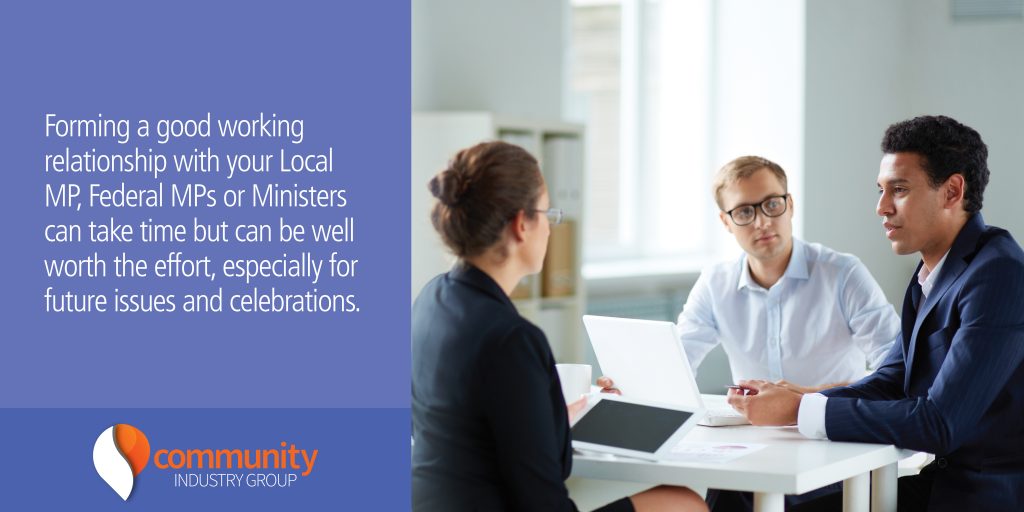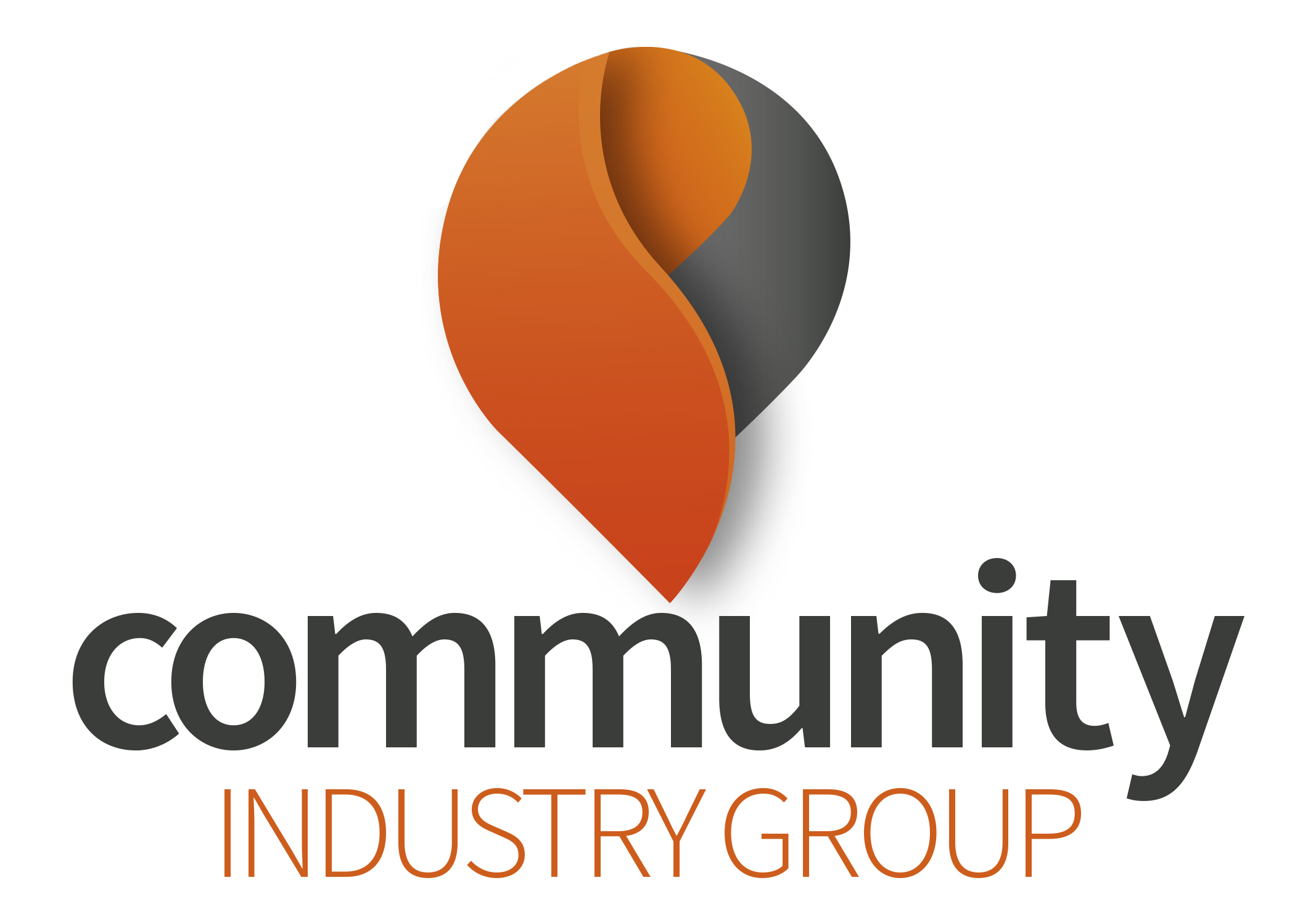Online Training
How you can lobby your government representatives

Who to contact
You need to determine if your matter concerns Federal, State or Local government responsibility. If you are unsure a good first step would be to phone your Local Member of Parliament (MP) and ask their office staff for advice.
- To find out who your MP is you can search here.
- To search for Senators click here.
- To research Ministers, Shadow Ministers and their portfolio responsibilities click here.
- Committees and Inquiries are published here.
- For printable A4 pdfs of MPs in Southern NSW click here.
Generally, the more interest you can raise about your issue the better chance you have of getting something changed e.g. a hundred letters are going to be noticed more than two or three.
Lobbying of Advocacy campaign
A campaign basically means that you ask others to actively pursue the same goal as you. This could include asking them to write, email or tweet at their MP about the issue.
- Campaigns are usually designed to make lobbying for your cause as easy as possible for participants. The issue should be easy to understand and clearly communicated.
- Campaigns should include a call (or calls) to action e.g. signing a petition, writing a letter, attending a protest, tweeting about the issue etc.
- You should try to get like-minded people involved in the campaign before you publicise the issue further. This buy-in will help promote the issue when you are ready to launch (e.g. with a website, petition, hashtag, social media images ready to go).
- Have a media spokesperson who is well educated on the issue and portrays the right image to support your campaign.
- Ask your Peak Body organisation (e.g. Community Industry Group) or other organisations that are affected by the issue involved in the campaign.
- Ask friends, family or colleagues to share campaign social media posts or display posters.
- Send out a media release or contact journalists known to you.
Tips for lobbying MPs and Ministers
Forming a good working relationship with your Local MP, Federal MPs or Ministers can take time but can be well worth the effort, especially for future issues and celebrations.
- If you would like to meet with a Member of Parliament call their office and ask for a meeting. It may not be possible within the time frame, but you could leave a message or email your query. Remember MPs represent the views of the citizens of their electorate but they are busy people with full schedules.
- If you are offered a meeting be early, have your information/research ready and be clear about your message/goal. Do some research about the MP. Know how to pronounce their name, learn how they have voted in the past here or listen to their Maiden speech which should be linked to their details on the Australian Government Website (e.g. Stephen Jones’ Maiden speech is here). It is a good idea to have facts/research printed out with copies available to leave with your MP at the conclusion of the meeting. Consider taking a colleague or trusted friend with you who will help keep the conversation on track. Always be respectful and express your views clearly in a calm manner without aggression.
- Invite your MP to celebrations or openings. Good news should be celebrated and can help build your relationship with your MP.
- Retweet or congratulate your MP publicly when they do something that you or your organisation approves of.
- Keep your MP informed of major issues facing your industry or organisation. This can be done via letter or email.
- Some MPs hold meet and greet sessions in local shopping centres or public areas. They will be advertised in their newsletters, websites and social media accounts.
Parliament Sitting Dates
A calendar of the Federal Parliament sitting dates is available here.
A calendar of the NSW Parliament sitting dates is available here.
Community Industry Group
Community Industry Group is the peak body working for community services and organisations in Southern NSW. We support community organisations, promote expertise and innovation, foster industry development and pursue social justice in the region. We provide a voice, influence and leadership for our not for profit members to ensure they feel heard, supported and informed in order to continue caring for the most vulnerable people in our society.
We often campaign on issues of importance for community service organisations. Our vision is to have an influential place at the table where decisions which impact on community service organisations and communities are made.
To keep up to date with developments, news, submissions and professional development opportunities please subscribe to our fortnightly e-newsletter here.

